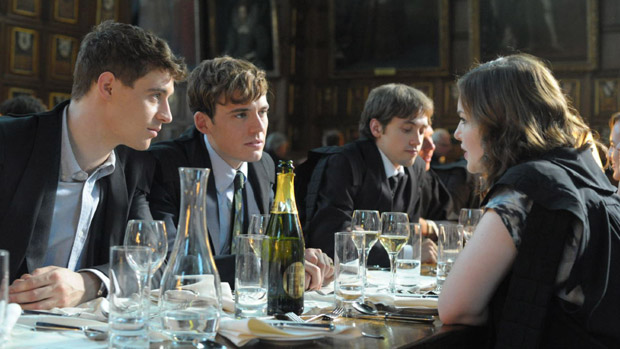The Riot Club – reviews of ‘darkly funny’ class drama
‘Brilliantly acted’ film adaptation of Posh reveals how rich boys are groomed for power

A free daily email with the biggest news stories of the day – and the best features from TheWeek.com
You are now subscribed
Your newsletter sign-up was successful
What you need to know
British drama The Riot Club is released in UK cinemas today. The film, directed by Lone Scherfig (An Education) and written by Laura Wade, is based on Wade’s satirical 2010 play Posh.
The story follows two upper-class Oxford freshers, Alistair and Miles, who are invited to join the Bullingdon-style Riot Club, but quickly discover the group’s debauched antics can get dangerously out of hand. Stars Max Irons, Sam Claflin, Douglas Booth and Freddie Fox.
The Week
Escape your echo chamber. Get the facts behind the news, plus analysis from multiple perspectives.

Sign up for The Week's Free Newsletters
From our morning news briefing to a weekly Good News Newsletter, get the best of The Week delivered directly to your inbox.
From our morning news briefing to a weekly Good News Newsletter, get the best of The Week delivered directly to your inbox.
What the critics like
Laura Wade, adapting her own hit play, has written a “darkly funny, colossally unflattering send-up of The Bullingdon Club”, says Cath Clarke in Time Out. It’s brilliantly acted by a Brit pack of young actors, and more than just mocking posh boys, it reminds us that the Riot Club is all part of grooming these boys for power.
This hilarious film is “perfectly cast in its main roles,” says Tim Robey in the Daily Telegraph. This whole business could have been an emotional vacuum, but Claflin, and a hugely impressive Irons, sock it about like opening batsmen who know exactly what they're doing.
Brits might object to such an enraging portrayal, which veers between salacious and cynical, but “Scherfig’s unique perspective makes her a smart choice to handle this material”, says Peter Debruge in Variety. As a Danish woman she approaches the milieu with shrewd anthropological wit, and an expert grasp of tension and tone as the club’s initial allure is replaced by anxiety and disgust.
A free daily email with the biggest news stories of the day – and the best features from TheWeek.com
What they don’t like
Ultimately, though, “it’s the very act of granting the play the big-screen treatment which most muzzles Posh's bite,” says Catherine Shoard in The Guardian. Stick anyone pretty in close-up, (especially familiar faces with a fan base) and chances are you'll root for them.